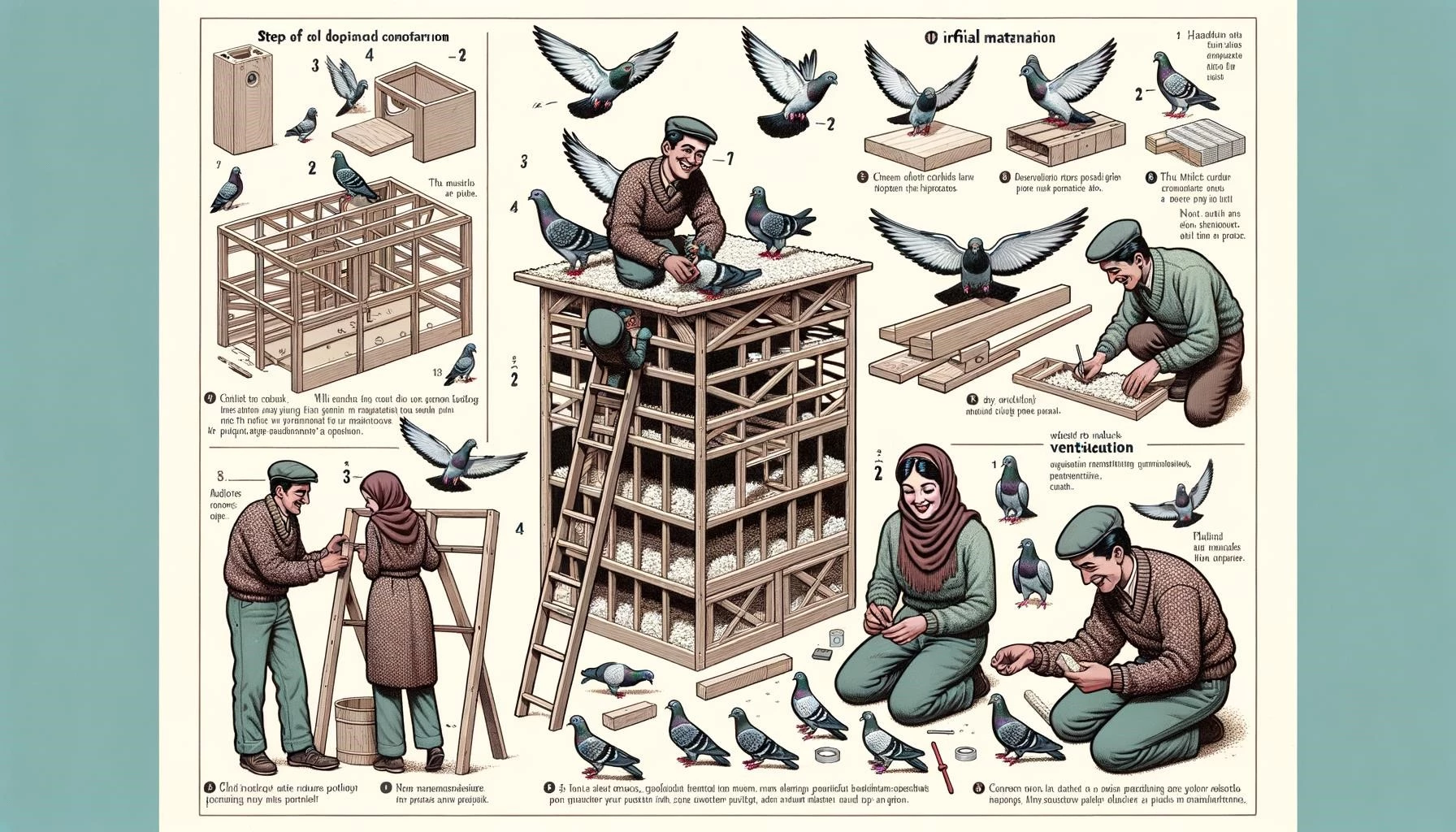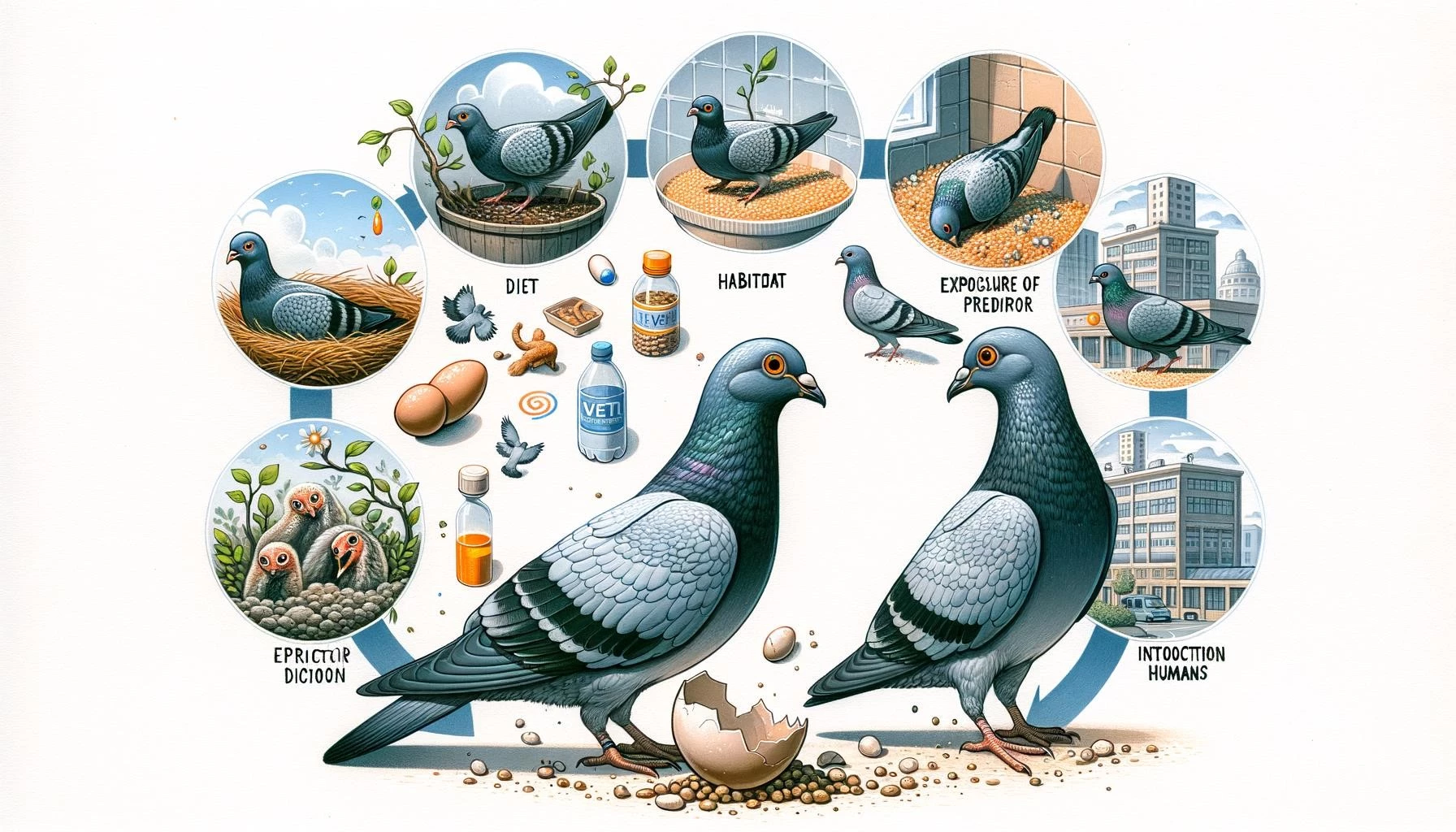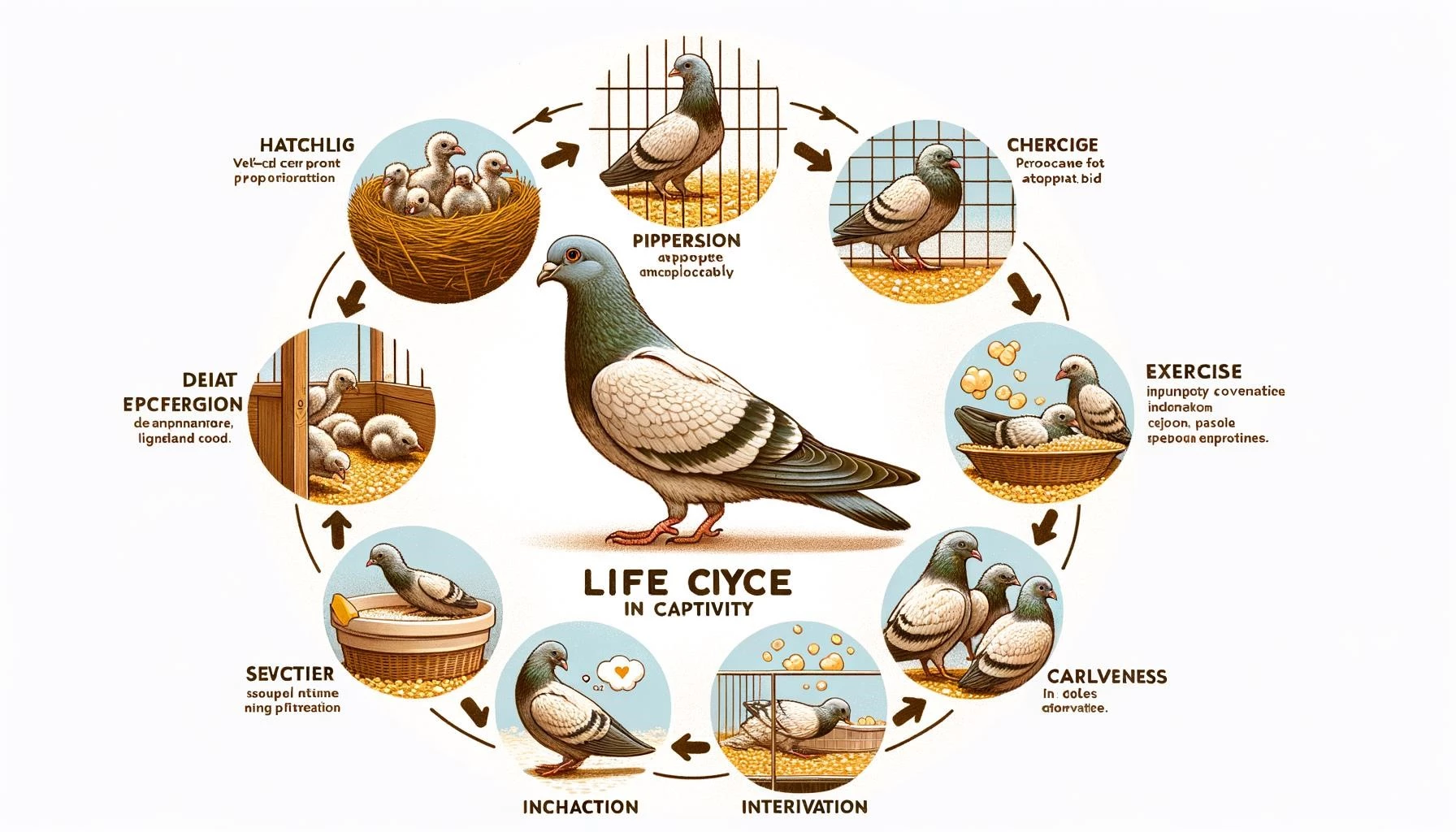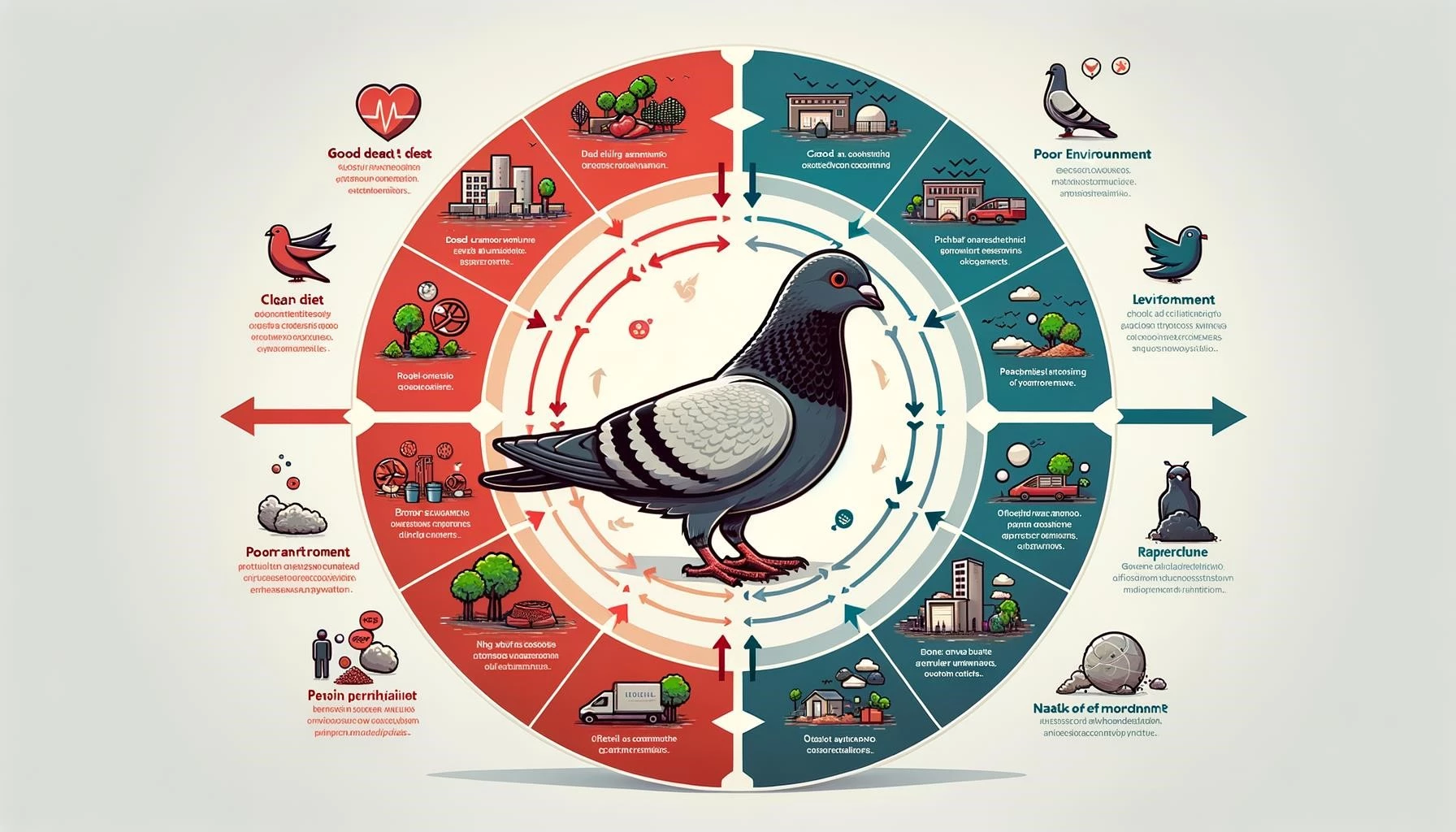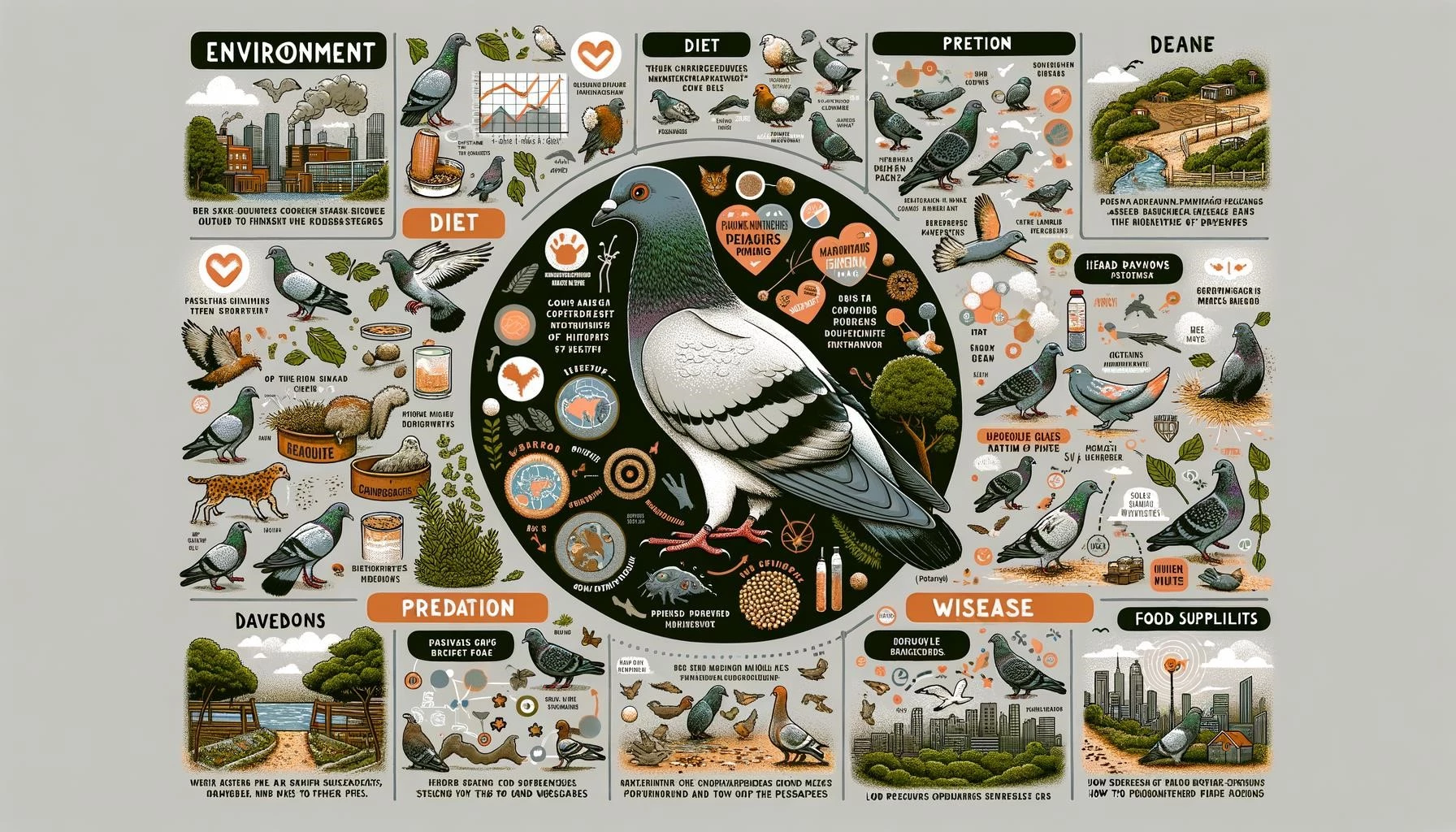Exploring the remarkable lifespan and activities of pigeons uncovers fascinating insights into these adaptable creatures. From the wild where survival is a daily struggle, to the safety of captivity, the lifespan of these birds is influenced by diet, shelter, and even predator protection. Beyond their lifespan, pigeons display intriguing behaviors and adaptability that help them thrive in diverse habitats, from bustling cities to tranquil rural settings. This exploration of pigeon longevity and activity reveals the resilience and surprising talents of these often underappreciated birds.
Key Takeaways
- The average lifespan of pigeons in the wild is 3 to 5 years, but they can live longer in captivity, with some reaching up to 20 years or more.
- Factors that influence pigeon lifespan include diet, shelter, protection from predators, and veterinary care.
- Pigeons in captivity have a longer lifespan due to access to food, shelter, protection, and medical care.
- A balanced and nutritious diet, a secure and clean living environment, routine health assessments, and regular exercise can prolong the lifespan of pigeons.
Pigeon Lifespan
Pigeons have an average lifespan of 3 to 5 years when living in the wild. This shorter lifespan in the wild is due to the various challenges they face, including predation, diseases, exposure to extreme weather conditions, and competition for food and resources. However, when pigeons are kept in captivity, such as in homing or racing pigeon lofts, they have the potential to live much longer.
In captivity, pigeons can exceed their average lifespan, with some living up to 20 years or more. This longer lifespan is attributed to the controlled conditions they experience, including access to regular meals, protected shelter, reduced exposure to predators, and dedicated veterinary care.
While these numbers reflect average lifespans, it is worth noting that well-cared-for pigeons in captivity can sometimes surpass expectations and live even longer.
Factors that Influence Pigeon Lifespan
Several factors contribute to the lifespan of pigeons:
Diet
A balanced and nutritious diet is essential for the health and longevity of pigeons. Providing a variety of quality grains, seeds, and supplementary foods tailored to their dietary needs can contribute to their overall well-being and lifespan. Adequate protein, vitamins, minerals, and clean water are crucial elements of a pigeon’s diet.
Shelter and Environmental Factors
Pigeons require a secure and comfortable living environment to thrive. A well-constructed loft that protects them from extreme weather conditions, predators, and excessive noise is important for their well-being. Proper ventilation and cleanliness help prevent the spread of diseases.
Protection from Predators
Predators pose a significant threat to pigeons’ safety and lifespan. Ensuring their living area is secure and implementing deterrents can help protect them from potential threats. Regular monitoring and prompt action against predators increase their chances of survival.
Veterinary Care
Routine health check-ups by a qualified avian veterinarian are crucial in maintaining the health of pigeons. Vaccinations, parasite control, and early detection of potential health issues can significantly prolong their lifespan. Prompt treatment of illnesses and injuries is also essential.
Pigeon Activity
Pigeons are known for their adaptability and can be found in various environments, including urban and rural areas. Their activity levels mainly revolve around finding food, shelter, and breeding.
In urban areas, pigeons often scavenge for food scraps and crumbs, taking advantage of human activity and waste management practices. They can be seen perching on buildings, walking on sidewalks, or gathering in public spaces. Pigeons often form large flocks, especially in areas with abundant food sources.
In rural areas, pigeons have access to a broader range of natural food sources such as seeds, grains, and vegetation. They may also build nests in trees or on the sides of buildings.
Overall, pigeons have a moderate level of activity, which includes flying, walking, and foraging. They are known for their ability to navigate and find their way back to their lofts over long distances, making them valuable for pigeon racing and homing activities.

